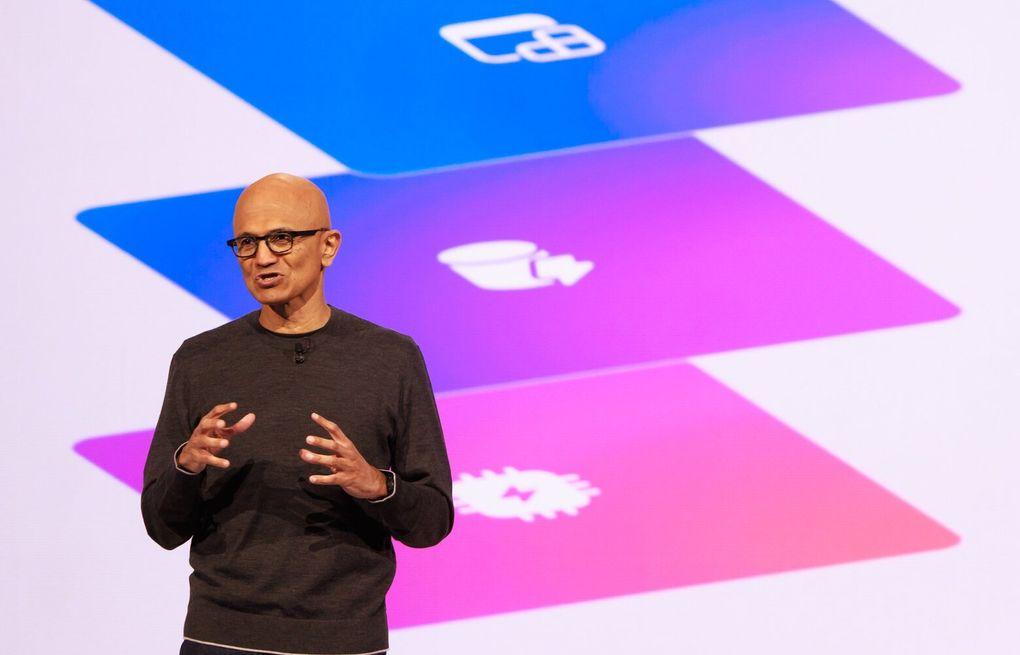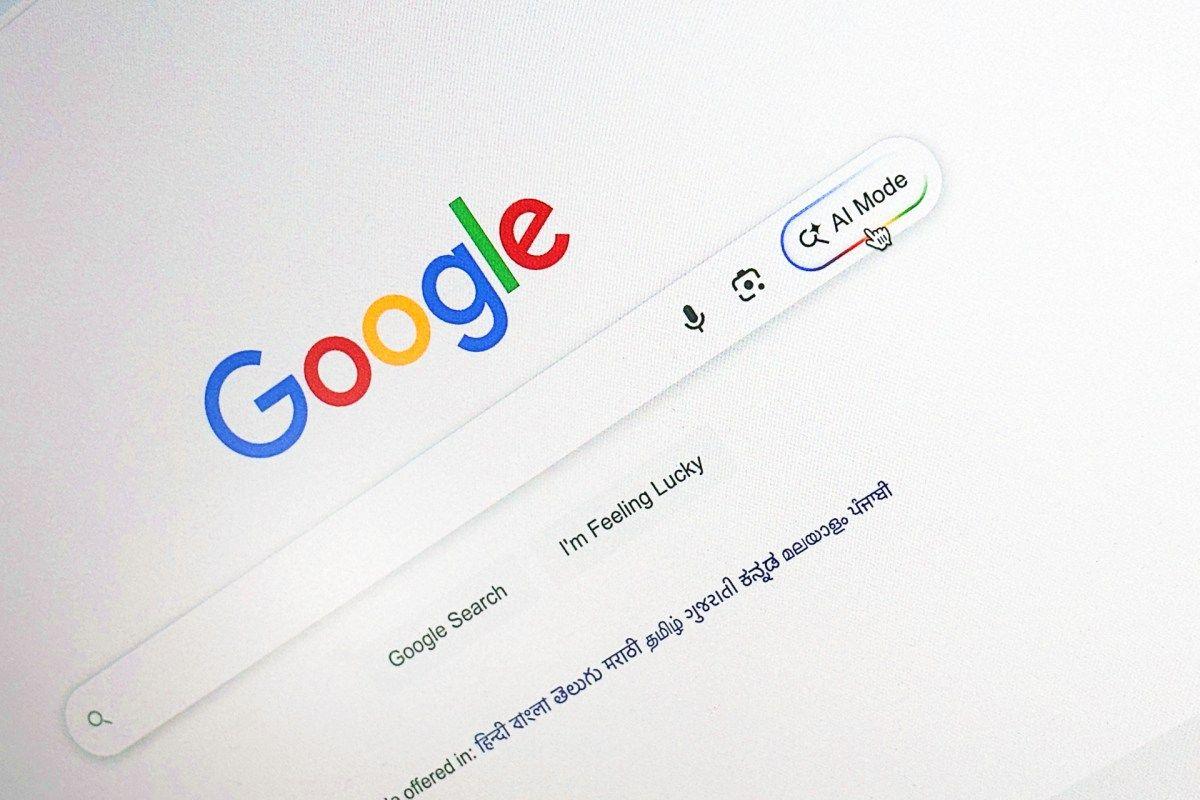Microsoft's Vision for an 'Open Agentic Web': Revolutionizing Internet Interaction with AI
2 Sources
2 Sources
[1]
Microsoft wants to radically change the way you surf the web
Microsoft sees artificial intelligence transforming the internet as fundamentally as mobile phones have over the past two decades. But the technology's limitations could curb Microsoft's grand vision. Generative AI -- which creates content based on a user's request -- burst into the zeitgeist in late 2022 when Microsoft-backed OpenAI launched ChatGPT, a conversational chatbot that could take a simple request and generate anything from a limerick to a college essay. Less than three years later, Microsoft has a plan to move beyond ChatGPT and its copycats by creating the foundation for a new version of the internet. Microsoft and its tech peers say the technology is moving fast. The industry is pouring billions into AI infrastructure and companies are restructuring corporate workforces to create agile teams for a shifting landscape. A week before Microsoft announced its ambitions for a new AI ecosystem, the company laid off more than 6,000 people in an effort to flatten management layers. Microsoft calls it the "open agentic web," with users sending AI-powered "agents" out into the void to do their bidding. Casual consumers primarily interact with AI now through a Google search -- one that repeatedly drums up false answers -- or a ChatGPT-esque chatbot that generates a conversation. In Microsoft's eyes, chatbots are old news. Microsoft's vision is a digital world in which autonomous agents interact with each other throughout the internet. For example, a user who wants to schedule a vacation will delegate an agent to venture through the muck and find flights, hotels and an itinerary that fit their budget, work that users currently have to do themselves. At the company's developer-focused Build conference in Seattle last week, CEO Satya Nadella explained the framework Microsoft wants to provide as it tries to remake the web. He used more technical examples of the agents, demonstrating them fixing bugs in computer code, creating PowerPoint presentations and sorting expense reports. All of the demonstrations were done toward the top of what Microsoft calls the AI stack. Other companies, and Microsoft, are building agents and AI models to interact with the data below them. Toward the bottom of the stack is an infrastructure that Microsoft supports. One aspect of it is establishing a protocol, the set of rules computers follow to talk with one another. Microsoft favors one called Model Context Protocol. Kevin Scott, the company's chief technology officer, likens it to HTTP in the internet, a standard that everyone can use to build out the web. The new protocol allows AI agents to go from website to website, collecting data and interacting with other agents. "It's filling an incredibly important niche," Scott said during a keynote address on May 19. Of course, Microsoft isn't alone in looking for the next big thing in AI. OpenAI spurred a wave of competing products from companies like Google, Meta and Elon Musk's xAI. The tech giants looking beyond chatbots and angling to change the web from click-based to agent-based is creating a new competition. Chirag Shah, a professor of information science at the University of Washington, said this could be a problem. The World Wide Web Consortium, a neutral party, has maintained standards for the internet's development since 1994. Microsoft can dictate the standards it wants for an agentic web but nobody has to accept them, Shah said. "I don't see this as changing the web," he said. "I see this as one set of ideas that already has competition." Shah has worked for Microsoft in the past but does not currently. Since the idea behind the agentic web is an ecosystem of errand runners zooming around autonomously, its success is predicated on pulling accurate information and doing things correctly. Since ChatGPT launched in 2022, chatbots and other AI-infused tech have struggled with accuracy. Last month, social media users discovered a quirk with Google's AI Overview. If a user added the word "meaning" to a nonsensical idiom, Google's AI would confidentially spit out a fictitious origin for the phrase. In the week leading up to Build, xAI's Grok chatbot started promoting conspiracy theories about white genocide in South Africa on Musk's social media platform, X. The replies from Grok were under posts wholly unrelated to the conspiracy theories. XAI said it was due to an unauthorized modification. On May 20, a day after Nadella and Scott announced their agentic web ambitions to a crowd of hundreds, 404 Media reported that the Chicago Sun-Times had used AI to create a book recommendation article. The problem? The list featured nonexistent books from authors and completely made-up quotes. Humans make mistakes on the internet as well. They're duped by misinformation, they fall for phishing scams and they read clickbait. But they understand the consequences of those mistakes, Shah said. Chatbots and agents don't. If an agent makes a mistake, will it know before it interacts with another and compounds it? "It's the equivalent to giving someone $100 and telling them to go shop for you," Shah said. "And that's low risk, but think about health care, legal issues and making financial decisions. "There are great consequences to making mistakes there." A new language AI adoption is another obstacle Microsoft faces. The company boasts that developers are pumping more agents into the ecosystem. It also said several websites like the live events platform Eventbrite and e-commerce company Shopify adopted a new software language project called NLWeb that allows a more fluid AI experience. NLWeb, like HTML was for the internet, is Microsoft's plan to revamp the way the web works. It's exciting technology for those in the tech industry. Shah said it's what developers have been hoping for, creating a natural language for casual internet users to search websites. But just like self-driving cars, while the technology is improving, there's a limit to widespread use. Autonomous vehicles are tested and deployed in limited markets. Microsoft hopes for the world to adopt the agentic web, but the future of it could be quite limited. "We're not ready, all of us, to give up our agency to these systems," Shah said. "It's not radically replacing the web as we know it." 2025 The Seattle Times. Distributed by Tribune Content Agency, LLC.
[2]
Microsoft wants to radically change the way you surf the web
Microsoft sees artificial intelligence transforming the internet as fundamentally as mobile phones have over the past two decades. But the technology's limitations could curb Microsoft's grand vision. Generative AI -- which creates content based on a user's request -- burst into the zeitgeist in late 2022 when Microsoft-backed OpenAI launched ChatGPT, a conversational chatbot that could take a simple request and generate anything from a limerick to a college essay. Less than three years later, Microsoft has a plan to move beyond ChatGPT and its copycats by creating the foundation for a new version of the internet. Microsoft and its tech peers say the technology is moving fast. The industry is pouring billions into AI infrastructure and companies are restructuring corporate workforces to create agile teams for a shifting landscape. A week before Microsoft announced its ambitions for a new AI ecosystem, the company laid off more than 6,000 people in an effort to flatten management layers. Microsoft calls it the "open agentic web," with users sending AI-powered "agents" out into the void to do their bidding. Casual consumers primarily interact with AI now through a Google search -- one that repeatedly drums up false answers -- or a ChatGPT-esque chatbot that generates a conversation. In Microsoft's eyes, chatbots are old news. Microsoft's vision is a digital world in which autonomous agents interact with each other throughout the internet. For example, a user who wants to schedule a vacation will delegate an agent to venture through the muck and find flights, hotels and an itinerary that fit their budget, work that users currently have to do themselves. At the company's developer-focused Build conference in Seattle last week, CEO Satya Nadella explained the framework Microsoft wants to provide as it tries to remake the web. He used more technical examples of the agents, demonstrating them fixing bugs in computer code, creating PowerPoint presentations and sorting expense reports. All of the demonstrations were done toward the top of what Microsoft calls the AI stack. Other companies, and Microsoft, are building agents and AI models to interact with the data below them. Toward the bottom of the stack is an infrastructure that Microsoft supports. One aspect of it is establishing a protocol, the set of rules computers follow to talk with one another. Microsoft favors one called Model Context Protocol. Kevin Scott, the company's chief technology officer, likens it to HTTP in the internet, a standard that everyone can use to build out the web. The new protocol allows AI agents to go from website to website, collecting data and interacting with other agents. "It's filling an incredibly important niche," Scott said during a keynote address on May 19. Of course, Microsoft isn't alone in looking for the next big thing in AI. OpenAI spurred a wave of competing products from companies like Google, Meta and Elon Musk's xAI. The tech giants' looking beyond chatbots and angling to change the web from click-based to agent-based is creating a new competition. Chirag Shah, a professor of information science at the University of Washington, said this could be a problem. The World Wide Web Consortium, a neutral party, has maintained standards for the internet's development since 1994. Microsoft can dictate the standards it wants for an agentic web but nobody has to accept them, Shah said. "I don't see this as changing the web," he said. "I see this as one set of ideas that already has competition." Shah has worked for Microsoft in the past but does not currently. Since the idea behind the agentic web is an ecosystem of errand runners zooming around autonomously, its success is predicated on pulling accurate information and doing things correctly. Since ChatGPT launched in 2022, chatbots and other AI-infused tech have struggled with accuracy. Last month, social media users discovered a quirk with Google's AI Overview. If a user added the word "meaning" to a nonsensical idiom, Google's AI would confidentially spit out a fictitious origin for the phrase. In the week leading up to Build, xAI's Grok chatbot started promoting conspiracy theories about white genocide in South Africa on Musk's social media platform, X. The replies from Grok were under posts wholly unrelated to the conspiracy theories. XAI said it was due to an unauthorized modification. On May 20, a day after Nadella and Scott announced their agentic web ambitions to a crowd of hundreds, 404 Media reported that the Chicago Sun-Times had used AI to create a book recommendation article. The problem? The list featured nonexistent books from authors and completely made-up quotes. Humans make mistakes on the internet as well. They're duped by misinformation, they fall for phishing scams and they read clickbait. But they understand the consequences of those mistakes, Shah said. Chatbots and agents don't. If an agent makes a mistake, will it know before it interacts with another and compounds it? "It's the equivalent to giving someone $100 and telling them to go shop for you," Shah said. "And that's low risk, but think about health care, legal issues and making financial decisions. "There are great consequences to making mistakes there." A new language AI adoption is another obstacle Microsoft faces. The company boasts that developers are pumping more agents into the ecosystem. It also said several websites like the live events platform Eventbrite and e-commerce company Shopify adopted a new software language project called NLWeb that allows a more fluid AI experience. NLWeb, like HTML was for the internet, is Microsoft's plan to revamp the way the web works. It's exciting technology for those in the tech industry. Shah said it's what developers have been hoping for, creating a natural language for casual internet users to search websites. But just like self-driving cars, while the technology is improving, there's a limit to widespread use. Autonomous vehicles are tested and deployed in limited markets. Microsoft hopes for the world to adopt the agentic web, but the future of it could be quite limited. "We're not ready, all of us, to give up our agency to these systems," Shah said. "It's not radically replacing the web as we know it."
Share
Share
Copy Link
Microsoft unveils its ambitious plan to transform web browsing through AI-powered 'agents', aiming to create a new internet ecosystem. However, challenges in accuracy and adoption may hinder this radical shift.
Microsoft's Vision for an AI-Powered Internet
Microsoft has unveiled an ambitious plan to fundamentally transform the way users interact with the internet. The tech giant is proposing a shift from the current click-based web to an "open agentic web," where AI-powered agents autonomously navigate the internet on behalf of users
1
2
.The Concept of the 'Open Agentic Web'
At the heart of Microsoft's vision is the idea of AI agents acting as digital assistants, capable of performing complex tasks across multiple websites. For instance, instead of manually searching for flights, hotels, and activities for a vacation, users could delegate these tasks to an AI agent that would compile all the necessary information and options
1
2
.Microsoft CEO Satya Nadella demonstrated this concept at the company's Build conference, showcasing AI agents performing tasks such as fixing bugs in computer code, creating PowerPoint presentations, and sorting expense reports
1
2
.
Source: Seattle Times
Technical Framework and Infrastructure
To realize this vision, Microsoft is proposing a new protocol called the Model Context Protocol, which would allow AI agents to interact with websites and other agents. Kevin Scott, Microsoft's Chief Technology Officer, likens this protocol to HTTP, the foundational standard of the current web
1
2
.Additionally, Microsoft is introducing NLWeb, a new software language project aimed at enabling a more fluid AI experience. Companies like Eventbrite and Shopify have already adopted this technology
1
2
.
Source: Tech Xplore
Related Stories
Challenges and Concerns
Despite the ambitious vision, several challenges could impede the realization of Microsoft's agentic web:
-
Accuracy Issues: AI-powered systems have struggled with accuracy, as evidenced by recent incidents involving Google's AI Overview and xAI's Grok chatbot
1
2
. -
Standardization: The World Wide Web Consortium has traditionally maintained web standards. Microsoft's attempt to dictate new standards may face resistance
1
2
. -
Adoption: Widespread adoption of the new system by developers and websites is crucial for its success
1
2
. -
Ethical Concerns: The potential for AI agents to make consequential mistakes in areas like healthcare or finance raises ethical questions
1
2
.
Industry Competition and Implications
Microsoft isn't alone in its pursuit of next-generation AI technologies. Companies like Google, Meta, and Elon Musk's xAI are also developing competing products, creating a new battleground in the tech industry
1
2
.This shift towards an agent-based web could have far-reaching implications for how users interact with digital content and services. However, as Chirag Shah, a professor at the University of Washington, points out, "I don't see this as changing the web. I see this as one set of ideas that already has competition"
1
2
.As the tech industry continues to pour billions into AI infrastructure and reshape corporate structures to accommodate these new technologies, the race to define the future of the internet is intensifying. Whether Microsoft's vision of an open agentic web will become reality remains to be seen, but it's clear that AI is set to play an increasingly central role in shaping our digital experiences.
References
Summarized by
Navi
[1]
[2]
Related Stories
Recent Highlights
1
X's Paywall Doesn't Stop Grok From Generating Nonconsensual Deepfakes and Explicit Images
Policy and Regulation

2
Nvidia Vera Rubin architecture slashes AI costs by 10x with advanced networking at its core
Technology

3
OpenAI launches ChatGPT Health to connect medical records to AI amid accuracy concerns
Technology








